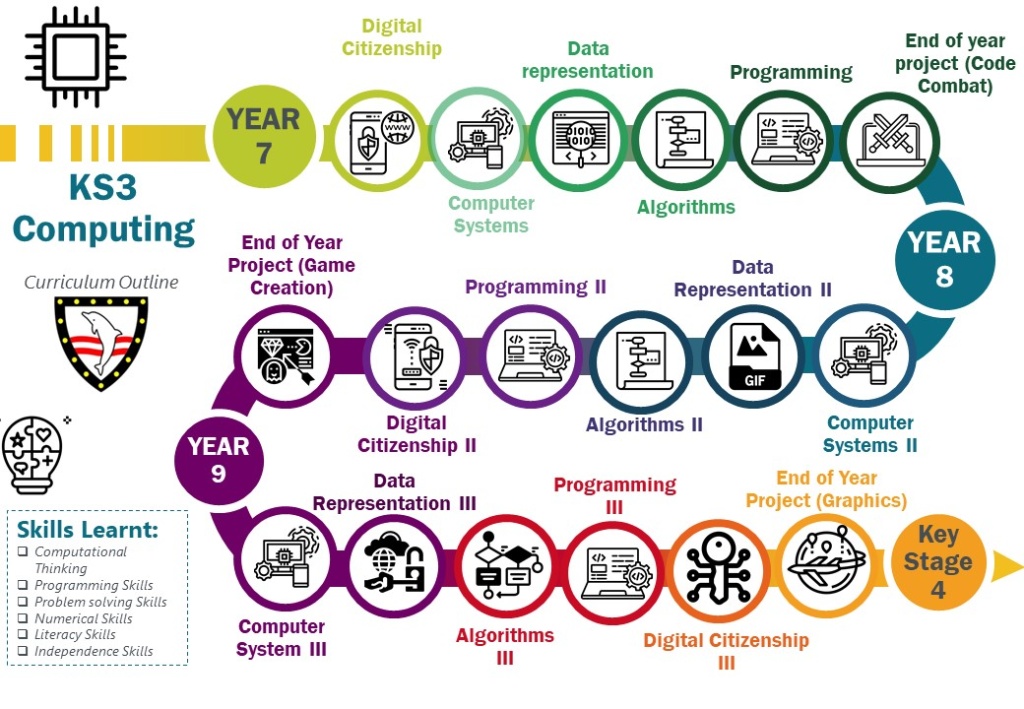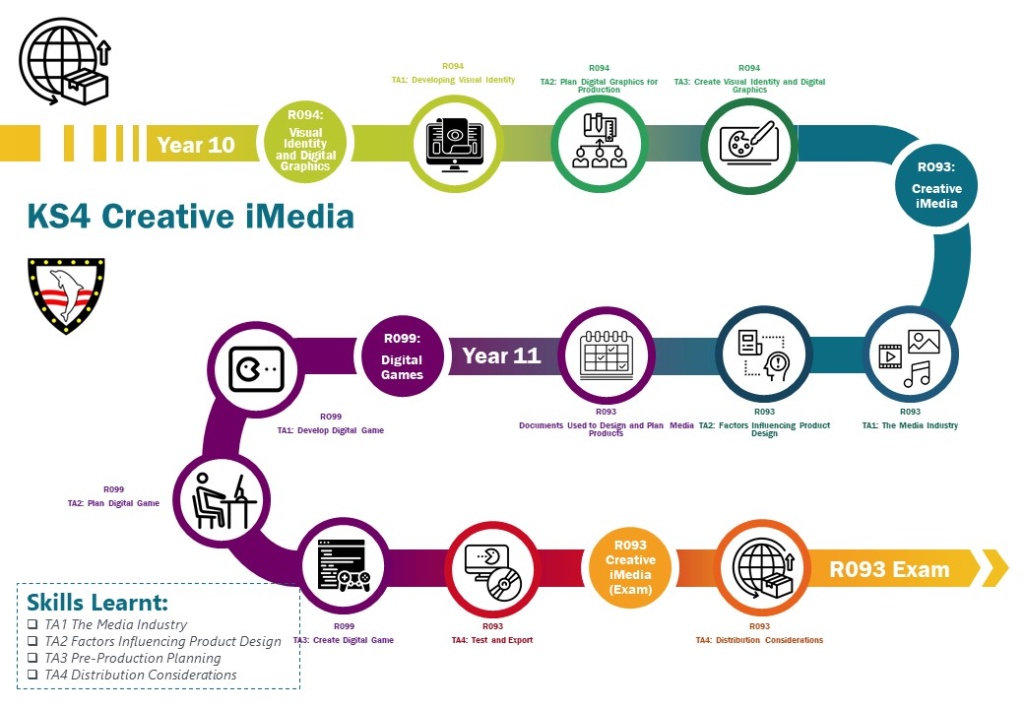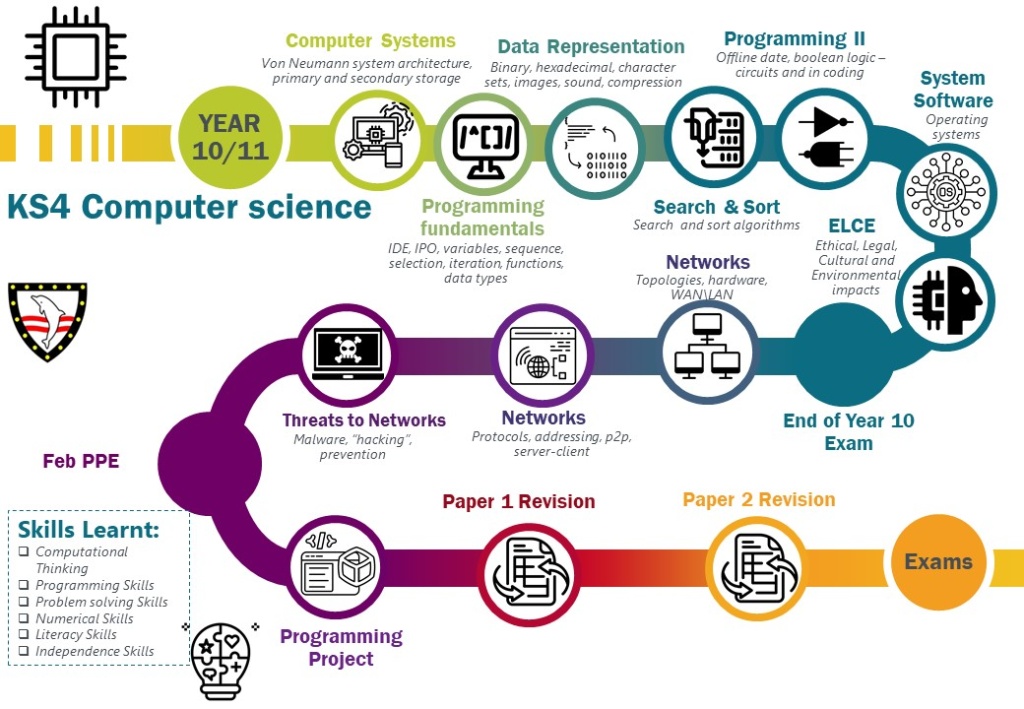Computing
Our Computing curriculum aims to ensure all students are equipped with the confidence and skills to thrive in the modern age and to become leaders of 21st Century technological development.
At a wider level, we aim to ensure students better understand the tools of the digital age, to be able to solve problems, work more efficiently and become responsible digital citizens.
Technology has become part of both adult and youth culture and the culture of the workplace and therefore it is vital that students are best educated in how to use it, how to stay safe and how to harness it to their advantage.
A high-quality computing education equips students to use computational thinking and creativity to understand and change the world. Computing has deep links with mathematics, science and design and technology, and provides insights into both natural and artificial systems. The core of computing is computer science, in which students are taught the principles of information and computation, how digital systems work and how to put this knowledge to use through programming.
Building on this knowledge and understanding, students are equipped to use information technology to create programs, systems and a range of content. Computing also ensures that students become digitally literate – able to use, and express themselves and develop their ideas through, information and communication technology – at a level suitable for the future workplace and as active participants in a digital world.
We follow five core strands each year, building on the concepts that have been investigated in the previous year to give students an opportunity to explore each area in detail. the core strands are:
Digital Citizenship
Data representation
Computational thinking with Algorithms
Programming
Computer Systems
Assessment
Each unit is assessed online using our Moodle VLE (Virtual Learning Environment). Homework will be comprised of a range of online and paper-based tasks and will support each of the above strands. Students can track their progress through Key Stage 3 in Moodle and review any tests they have taken over the years.
A curriculum overview calendar for Years 7-11 Computing is available here
Additional information on Key Stage 3 ICT and Computing can be obtained by contacting:
Mr A Griffiths – Head of Business, ICT and Computing
At Key Stage 4, students can opt to study either Information Technology or Computer Science. In Computer Science, students follow the OCR Comptuer Science GCSE and in Information Technology, students follow the OCR Creative iMedia course.
OCR Creative iMedia is the IT qualification followed at school. A vocational Level 2 qualification, iMedia gives students an opportunity to use creative digital applications such as Photoshop, Dreamweaver and Animate to complete projects based around a series of project briefs – for example designing an album cover or creating a multi-page website. In addition to this students will also sit a written examination where they have to demonstrate understanding of project planning techniques as well as storyboarding and design.
A curriculum overview calendar for Creative iMedia is available here
At Key Stage 4, students can opt to study either Information Technology or Computer Science. In Computer Science, students follow the OCR Comptuer Science GCSE and in Information Technology, students follow the OCR Creative iMedia course.
Computer Science GCSE expands on students’ Key Stage 3 learning and focusses on:
- System Architecture (using the Von Neumann model of computers),
- Data Representation (Binary and Hexadecimal),
- Networks (LAN, WAN, wired and wireless),
- Security Systems (including legal responsibilities as well as cyber warfare and terrorism)
- Algorithms (pseudocode and flowcharts)
- Programming Techniques
- Programming Languages and facilities
The course is assessed in two 90 minute written examinations, paper one which assesses a students understanding of computer systems and networks and paper two which assesses a students understanding of programming and data representation. In addition there is a non-assessed required practical which allows students to investigate and develop their programming skills.
A curriculum overview calendar for Years 7-11 Computing is available here



